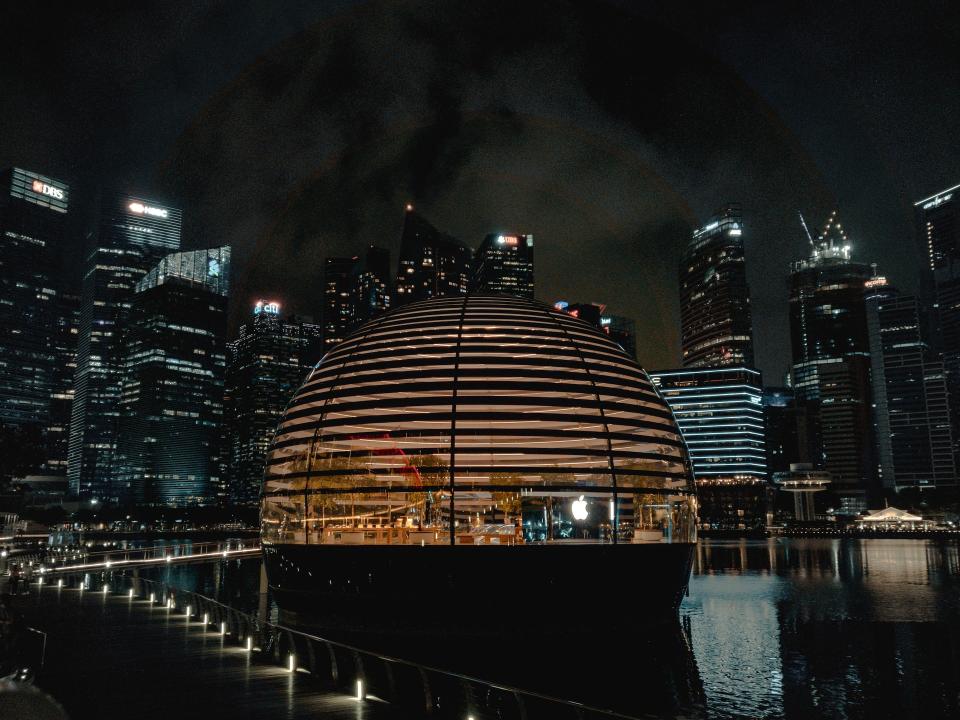Reviving Retail And Making Singapore A Vibrant Lifestyle Hub: Retail Industry Transformation Map (ITM)

Ever since the first Retail Industry Transformation Map (ITM) in 2016, over 7,000 retail SMEs have undergone productivity improvement projects and 9 in 10 of all retail SMEs have adopted at least one digital solution.
The 2025 Retail ITM will focus on building global brands, making Singapore a hub for global retail brands, improving research and development of products in Singapore and upskilling the average worker for the future of retail. As mentioned by Mr Andrew Kwan Future Economy Council (FEC) Lifestyle Cluster Co-Chair: “The 2025 Retail ITM aims to create a vibrant, globally-competitive retail ecosystem that excites Singaporeans and global consumers.”
With multi-ministry support for the retail industry, the 2025 Retail ITM will focus on 4 key strategies to keep the Singapore retail industry vibrant and buzzing.
Read Also: Starting An Ecommerce Side Hustle: How You Can Sell To International Customers Without Experience
#1 Building Global Singapore Brands And Supporting Internationalisation
By building on the works from the 2016 Retail ITM, which focused on onboarding more local retail SMEs onto the digital marketplace, the 2025 Retail ITM will be using that momentum to drive retail SMEs into the global and regional B2C e-marketplaces.
E-commerce companies will provide logistical, technical and marketing support for local retail SMEs to promote their brand & products in Southeast Asia. An example is how Lazada provides its experience and resources to assist companies onboard its regional e-marketplaces.
For local retail SMEs, expanding overseas is usually a daunting task due to the various barriers to entry that exists, such as understanding foreign business landscapes, languages and trends.
One way that the government intends to help promote promising local retail SMEs overseas is through roadshows and events. For example, a group of MWP brands participated in a showcase in Jakarta, led by the Singapore Tourism Board to showcase local brands.
Local SMEs can also tap on the Market Readiness Assistance (MRA) grant if there are plans to expand overseas. Secretlab connected with EnterpriseSG and through the MRA scheme, it gave them a huge boost to promote Secretlab products overseas.
Read Also: How Much Does It Cost To Start A Retail E-Commerce Business In Singapore?
#2 Rejuvenating Retail By Catalysing New Experiential Concepts And Innovations
The idea of encaptivating a greater experience for shoppers in-store drives the second strategy. Providing unique in-store experiences, and getting on social commerce like Tik Tok and Facebook to create a more personal experience for customers, are crucial implementations that retailers need to adapt to stay relevant.
The 2025 Retail ITM prioritises Research & Development (R&D) for local products and to innovate new products and services for the global market. This is a shift away from relying on rebranding Original Equipment Manufacturer (OEM) products and will allow local SMEs to stay competitive and differentiate Singaporean companies from global competitors.
An example would be that EnterpriseSG will be working with centres such as the Singapore Polytechnic’s Consumer Chemicals Technology Centre (CCTC) to support local SMEs in R&D beauty and personal products.
To stay competitive, a multi-organisational push from the likes of the Singapore Furniture Industries Council (SFIC) and Trade Association Chambers (TAC) will support companies in building sustainable products and pursuing a more circular economical model.
#3 Strengthening Singapore’s Position As A Vibrant Lifestyle Hub For Global Brands
Besides being Asia’s top financial centre, Singapore is now aiming to be a hub for global retail brands. This allows closer collaborations and partnerships with both global and local companies to work together.
By riding on Singapore’s reputation for stability and competitiveness, more international brands like Decathlon, are setting up hubs to incubate new products and solutions. Another example would be the opening of the first Uniqlo store in Singapore through a joint venture with Wing Tai Retail.
EnterpriseSG has also increased efforts in creating design licensing collaborations with international companies to launch collaborative products and solutions. For example, Cotton On has collaborated with IRVINS and co-launched merchandise with the help of EnterpriseSG.
This allows local SMEs to increase brand recognition overseas as well as allow local firms into the local retail system.
Read Also: Is The Progressive Wage Model An Alternate (And Better) Form Of Minimum Wage?
#4 Stepping Up Jobs And Skills Transformation And Creating Quality Roles For Locals
With a wider competition base now being developed by expanding overseas and improving locally made products, new specialisation positions are being created to fill the gaps created by innovation.
The 4th strategy aims in upgrading and reskill the current retail workforce for emerging retail roles such as digital marketers, data analysts, brand managers and product designers.
EnterpirseSG (ESG), Workforce Singapore (WSG and Skills Future Singapore (SSG) will support more companies to provide opportunities to upgrade the current workforce to be better prepared for the change in the retail landscape.
The two revamped Career Conversion Programmes (CCP) are part of the multi-faceted government approach to support mid-career individuals to undergo skills conversion, thus allowing better opportunities for progression and allowing new entrants to take on redesigned job roles.
The Progressive Wage Model (PWM) for the retail industry further ensures better pay and progression in the retail industry. This will make the industry more attractive and ripe for future growth with new talent.
Read also: How Singaporean Workers Can Redefine The Future Of Work
The post Reviving Retail And Making Singapore A Vibrant Lifestyle Hub: Retail Industry Transformation Map (ITM) appeared first on DollarsAndSense Business.

 Yahoo Finance
Yahoo Finance 